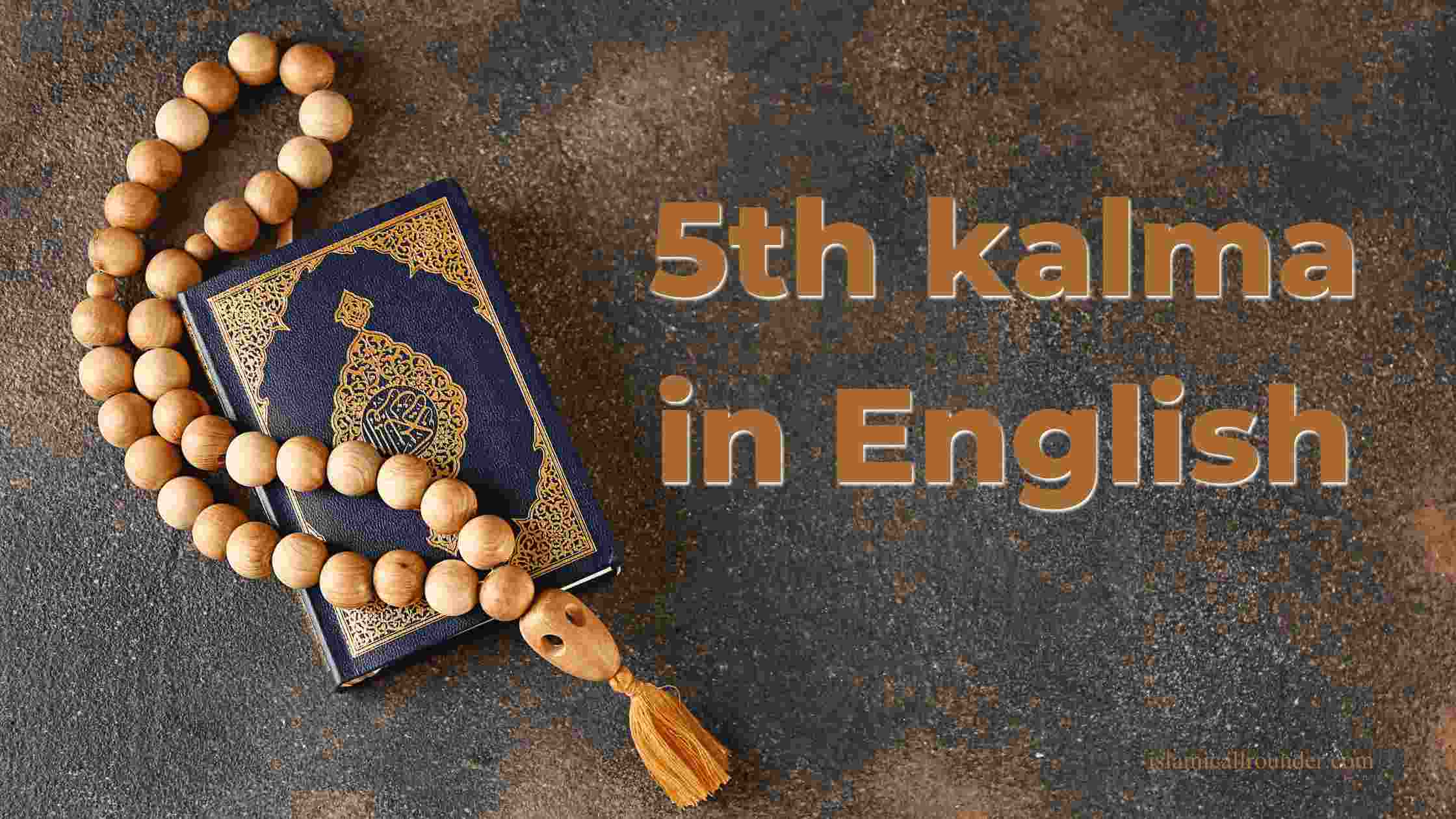The 5th Kalma in English holds a significant place in the lives of Muslims worldwide. Known as the “Kalma Astaghfar” or the “Word of Seeking Forgiveness,” it is a powerful reminder of the need for repentance and humility in the face of human imperfection. Understanding the meaning and importance of the 5th Kalma in English can enrich one’s spiritual experience and bring a deeper connection to the faith.
The 5th kalma is known as “Istighfar”, which means asking for forgiveness. It is one of the most essential kalma among the six well-known kalma in Islam. It mentions asking forgiveness for one’s sins; there is no doubt that forgiveness is always sought by the person who first realizes that what he has done is wrong.
After realizing our mistake, we sincerely ask for forgiveness, which is undoubtedly accepted. Through this fifth kalma, we can ask Allah for forgiveness for our sins and errors.
What is the 5th Kalma in English?
The 5th Kalma, or Kalma Astaghfar, is a short declaration of repentance. It is recited by Muslims who seek forgiveness from Allah for their sins and mistakes. The Kalma highlights the importance of repentance to Allah and acknowledging one’s faults.
When we were young and went to the mosque to study, these kalima were remembered there. We used to read them in the school books, but we needed help understanding their meaning. Let’s read the fifth kalima with English meaning.
5th kalma in Arabic
اَسْتَغْفِرُ ﷲَ رَبِّيْ مِنْ کُلِّ ذَنْبٍ اَذْنَبْتُهُ عَمَدًا اَوْ خَطَاً سِرًّا اَوْ عَلَانِيَةً وَّاَتُوْبُ اِلَيْهِ مِنَ الذَّنْبِ الَّذِيْ اَعْلَمُ وَمِنَ الذَّنْبِ الَّذِيْ لَآ اَعْلَمُ ط اِنَّکَ اَنْتَ عَلَّامُ الْغُيُوْبِ وَسَتَّارُ الْعُيُوْبِ وَغَفَّارُ الذُّنُوْبِ وَلَا حَوْلَ وَلَا قُوَّةَ اِلَّا بِاﷲِ الْعَلِيِّ الْعَظِيْمِ.
This powerful phrase encapsulates the essence of seeking forgiveness and emphasizes the importance of self-reflection.
5th kalma in English
“I seek forgiveness from Allah, my Lord, from every sin which I knowingly committed and from every sin which I unknowingly committed, and I turn to Him in repentance from any sin I am aware of and from any sin I am unaware of.”
The virtue of asking for forgiveness
The method of Istighfar is for the servant to praise his Lord, then confess his sins, and seek forgiveness from Allah.
Hazrat Hasan Basri says: “Ask for forgiveness frequently in your homes, at your table, in your passageways and markets, and in your gatherings and wherever you go, because you do not know when forgiveness will be revealed.”
Asking for forgiveness has many benefits, such as:
- Allah Almighty showers His mercy on those who seek forgiveness and bestows rivers and gardens
- Allah Ta’ala blesses those who seek forgiveness with sustenance, wealth, and treasures of children
- Those who seek forgiveness are always in obedience to Allah
- Servants who seek forgiveness become closer to Allah
- Servants who seek forgiveness are removed from Satan
- Suffering ends in the lives of such people
- Angels also bless such people
The Importance of the 5th Kalma
A Path to Forgiveness
Reciting the 5th Kalma is a direct way for Muslims to seek forgiveness from Allah. Sincere repentance and a commitment not to repeat the sin are believed to lead to divine forgiveness. Reciting the Kalma encourages Muslims to reflect on their actions and strive for spiritual purity.
Enhancing Spiritual Experience
The 5th Kalma is not just about seeking forgiveness; it also enhances one’s spiritual connection with Allah. By regularly reciting this Kalma, Muslims remind themselves of their fallibility and the importance of staying humble. This humility is critical to the Islamic faith and helps believers remain grounded in their spiritual journey.
The Role of the 5th Kalma in Daily Life
A Daily Reminder
For many Muslims, the 5th Kalma is a daily recitation that serves as a constant reminder of the importance of repentance. It is often recited after prayers, during moments of reflection, or whenever one feels the need to seek forgiveness. This regular practice reinforces the concept of personal accountability and Allah’s mercy.
Impact on Mental Well-Being
Engaging in the regular recitation of the 5th Kalma can positively impact mental well-being. The act of seeking forgiveness and believing in divine mercy can alleviate guilt and provide relief. This, in turn, promotes a sense of peace and spiritual contentment.
Conclusion
The 5th Kalma in English is a powerful and essential component of Islamic worship. Its recitation serves as a means of seeking forgiveness, enhancing spiritual connection, and maintaining humility. Muslims can deepen their spiritual experience and foster a closer relationship with Allah by understanding its meaning and importance. Whether recited daily or during moments of reflection, the 5th Kalma reminds us of the mercy and forgiveness always available to those who seek it sincerely.
Frequently Asked Questions About the 5th Kalma
What is the meaning of the 5th Kalma in English?
The 5th Kalma, known as Kalma Astaghfar, translates to a declaration of repentance and seeking forgiveness from Allah for sins committed knowingly and unknowingly.
How often should the 5th Kalma be recited?
No specific requirement for how often the 5th Kalma should be recited. However, it is encouraged to recite it regularly, especially when seeking forgiveness or during moments of reflection.
Can the 5th Kalma be recited in any language?
While it is traditionally recited in Arabic, the 5th Kalma can be recited in any language, including English, as long as the meaning and intention behind the recitation are preserved.
What is the significance of the 5th Kalma in daily life?
The 5th Kalma is a daily reminder of the importance of repentance and seeking forgiveness. It helps Muslims maintain a humble attitude and strengthens their spiritual connection with Allah.
Is the 5th Kalma a part of the daily prayers?
The 5th Kalma is not a formal part of the daily prayers (Salah), but it can be recited after prayers or at any time when one feels the need to seek forgiveness.
